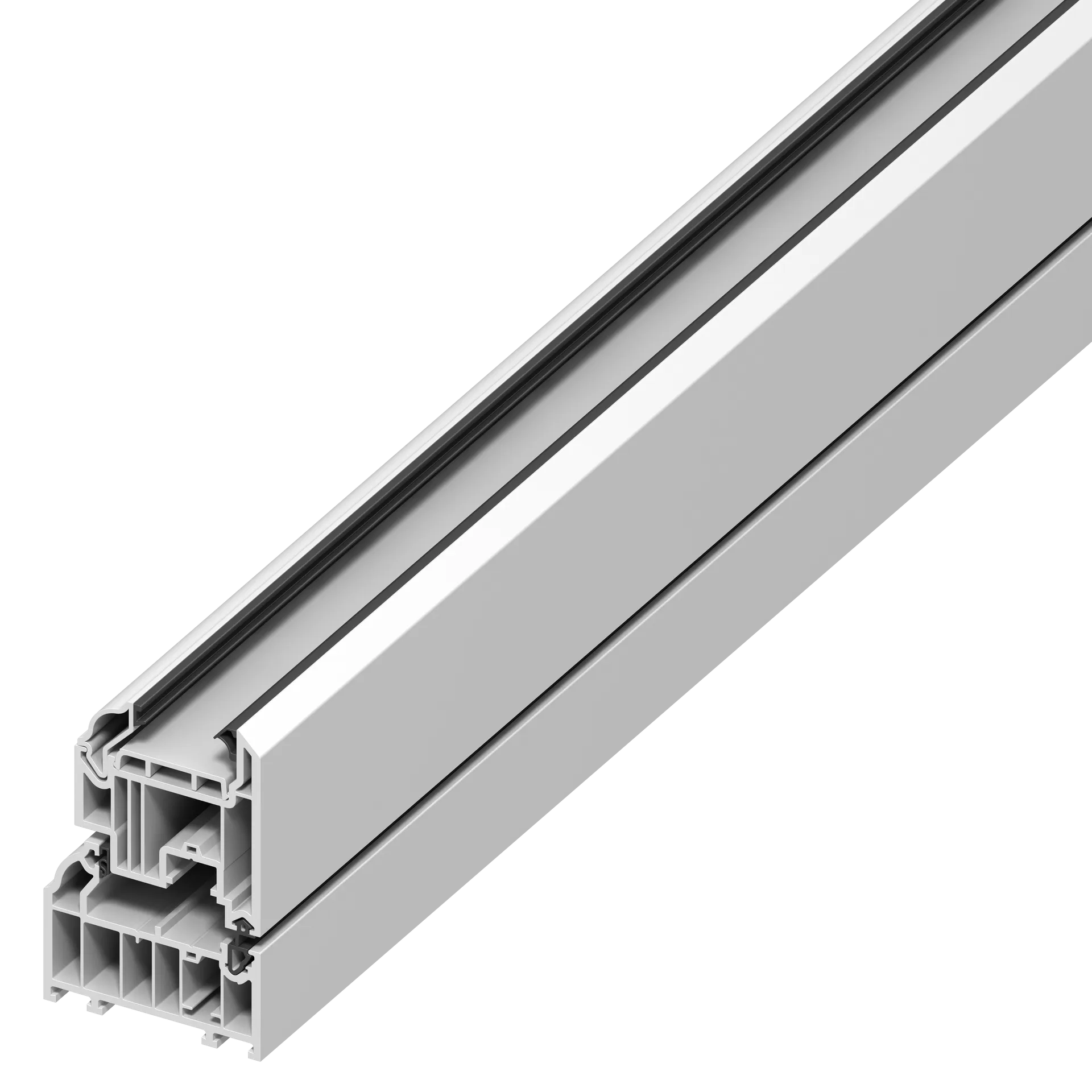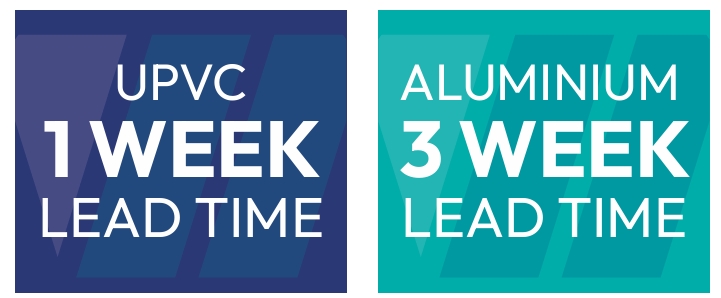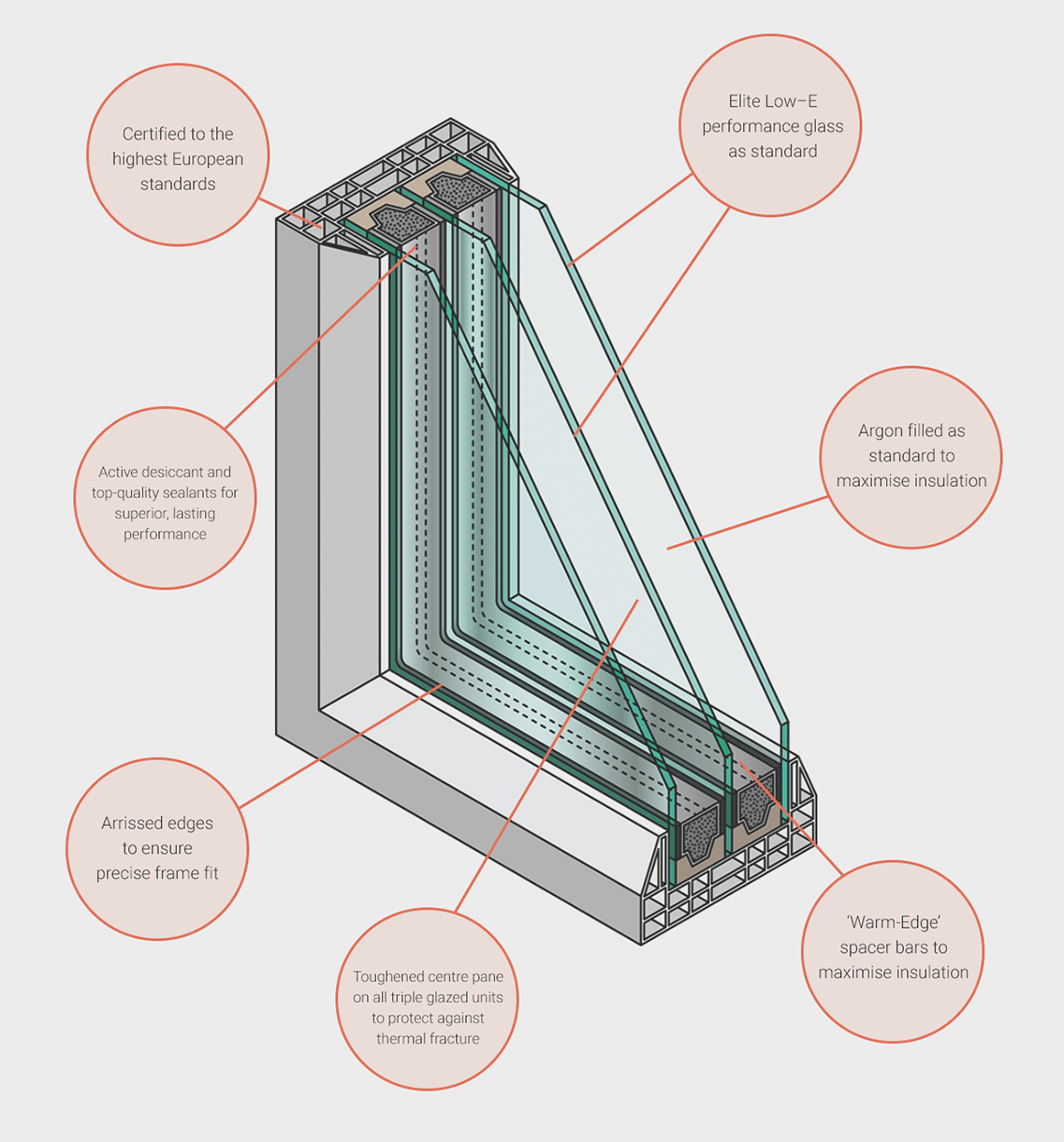Thermal Efficiency: UPVC vs Timber Windows

- 15 February 2024
- Windows
Thermal Efficiency
Keeping it Cool in Summer and Cosy in Winter: Why UPVC Double Glazing Wins Over Timber Windows
When it comes to windows, the battle between traditional timber and modern UPVC often heats up (pun intended!). Both materials offer their own unique advantages, but when it comes to thermal efficiency, UPVC double glazing reigns supreme.
Why Thermal Efficiency Matters:
Think of your home as a giant thermal envelope. In the summer, you want to keep the heat out, while in the winter, you want to trap it in. Windows play a crucial role in this temperature balancing act, and their efficiency directly impacts your energy bills and overall comfort.
Timber vs. UPVC: The Insulation Showdown
- Conductivity: UPVC is a poor conductor of heat, meaning it effectively insulates your home from the scorching summer sun and the biting winter wind. Timber, on the other hand, conducts heat more readily, leading to greater temperature fluctuations inside.
- Airtightness: Modern UPVC windows boast multi-point locking systems and advanced seals that create an almost airtight barrier. This prevents drafts and leaks, further enhancing thermal performance. Timber windows, especially older ones, can develop gaps and cracks over time, compromising their insulating abilities.
- Double Glazing: Both UPVC and timber frames can accommodate double glazing, the real hero of thermal efficiency. This technology involves two panes of glass separated by a sealed air gap, creating a significant barrier against heat transfer. However, UPVC frames typically offer better compatibility with modern high-performance double glazing units, further boosting their insulating power.
- Maintenance: UPVC requires minimal upkeep, needing only an occasional wipe down with soapy water. Timber windows, on the other hand, demand regular repainting and maintenance to maintain their weather resistance and thermal performance.
The Numbers Don’t Lie:
Studies have shown that UPVC double glazed windows can reduce heat loss by up to 70% compared to single-glazed timber windows. This translates to significant savings on your energy bills, especially in regions with extreme weather conditions.
Beyond just thermal efficiency, UPVC double glazing offers other benefits:
- Improved noise reduction: The airtight seals and thicker glass panes effectively block out unwanted noise, creating a more peaceful living environment.
- Enhanced security: Multi-point locking systems and sturdy frames make UPVC windows a more secure choice, deterring potential intruders.
- Reduced condensation: The improved insulation minimizes the formation of condensation on the inside of the windows, preventing mold growth and damage to your furnishings.
Making the Choice:
While traditional timber windows have their charm, their thermal efficiency shortcomings pale in comparison to the modern advantages of UPVC double glazing. If you’re looking for windows that keep your home comfortable year-round, save you money on energy bills, and require minimal maintenance, UPVC is the clear winner. So, ditch the drafts and embrace the warmth of a well-insulated home with UPVC double glazing!
Additional Tips:
- Consider the U-value and g-value of your chosen windows. The lower the U-value, the better the thermal insulation. The higher the g-value, the more solar heat gain you’ll experience.
- Choose the right type of double glazing unit for your needs. Options include standard double glazing, argon-filled units for enhanced insulation, and even self-cleaning glass.
- Invest in professional installation to ensure optimal performance and airtightness.
By making an informed decision about your windows, you can create a more energy-efficient, comfortable, and sustainable home for years to come.






